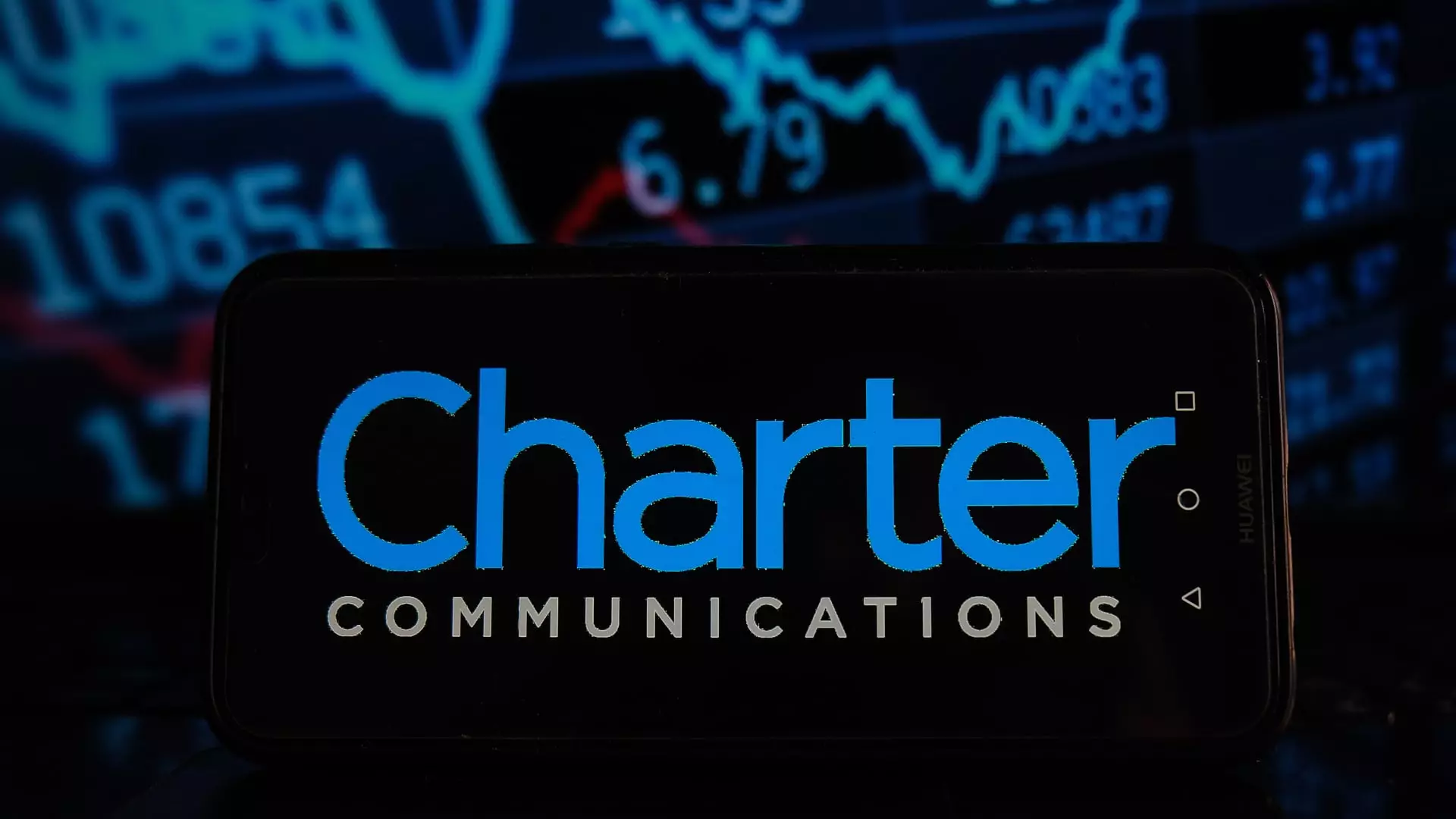The merger between Charter Communications and Cox Communications is being hailed as a monumental shift in the cable industry. On the surface, with an enterprise valuation of $34.5 billion—coupling $21.9 billion of equity and $12.6 billion in net obligations—it seems ripe with potential. However, an in-depth analysis reveals a precarious imbalance that threatens to suffocate competitiveness, smother consumer choice, and distort the very fabric of the telecommunications landscape. Merger mania is here again, but not all transformations create sustainable benefits for the average American consumer.
The Illusion of Growth Amid Decline
Let’s cut to the chase: the cable industry is in peril, even as these corporate giants wrestle for dominance. Charter’s recent quarterly report shows they lost 60,000 broadband customers and 181,000 cable customers. Those figures should raise alarm bells. The broader trend where traditional cable television is flailing should not be dismissed casually, and yet here we stand witnessing the formation of a behemoth at a time of decline. Instead of innovating for consumer retention, these companies are resorting to gluttonous acquisitions, burying their heads in the sand while alternative options like 5G technology lure consumers away.
With Charter proclaiming growth in mobile lines—10.5 million as of the first quarter—while shedding its core broadband consumers, the narrative becomes disheartening. Calling mobile a saving grace is a poorly constructed façade. In a landscape where the internet itself has transcended all boundaries, consumers should be empowered by multiple choices rather than thrust into the arms of an emerging monopoly.
Consumer Choice: Casualty of Corporate Greed
Beneath the merger hype lies a fundamental question: What prices will consumers pay—literally and figuratively—for this corporate shuffling? The purveyors of telecommunications seem nothing short of predatory, engaged in a turf war that disregards the needs of the everyday American. In their relentless pursuit of shareholder value, they forsake the true essence of service. The reality is that fewer players mean fewer choices and inflated prices—a recipe for disaster.
As Cox and Charter unite, we must scrutinize the ramifications. Consumers have already been enduring increased rates cloaked as “competitive pricing.” Their promises of improved service are little more than empty rhetoric when 57 million households are faced with compromised customer support and deteriorating satisfaction levels. This merger isn’t just a business deal; it’s a subtle erosion of our democratic access to information and communication.
The Ill-Fated Promise of Efficiency
In a bid to justify this merger, Charter parades around cost synergies amounting to a whopping $500 million annually. Yet these supposed efficiencies often come at the expense of jobs, local involvement, and community engagement. When one of the parties in the merger is family-run and the other publicly traded, executives have a tendency to lose sight of customer-centric approaches, steering their vision towards maximized profits rather than genuine progress.
Furthermore, the proposed combination of offices and workforce will lead to inevitable layoffs, further deepening a chasm in workplace morale and diversity. The executives may pat themselves on the back, hailing the efficiencies, but the fallout progressively accumulates in communities as the fabric of the workforce alters—not always in a positive way.
The Importance of Regulatory Oversight
When such large-scale mergers are on the table, vigilant regulatory oversight becomes imperative. We cannot afford to ignore the precedents set by this union. The Federal Communications Commission (FCC) must be steadfast in scrutinizing the long-term impact of such consolidations, ensuring they do not pave the way for monopolistic practices that invade our homes under the guise of progress.
Ignoring consumer needs and market health during this merger could send reverberations far beyond the immediate effects. As such, it’s imperative for legislators and regulators to play their roles aggressively, shielding the public from the mercurial whims of corporate America. The merger of Charter and Cox is not merely a business transaction; it is a loud clarion call for consumer responsibility and regulatory vigilance in an age where companies strive to control our digital destinies. The real question is whether we, as consumers and citizens, will respond.


Leave a Reply